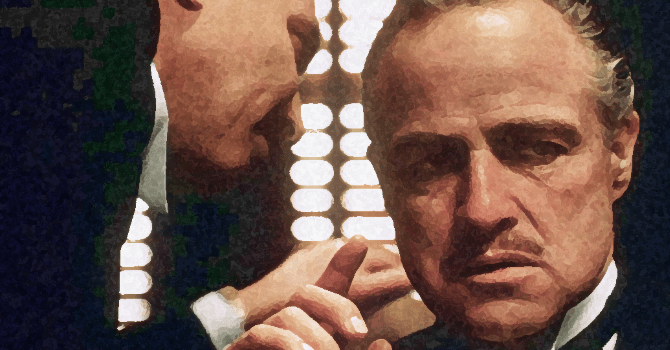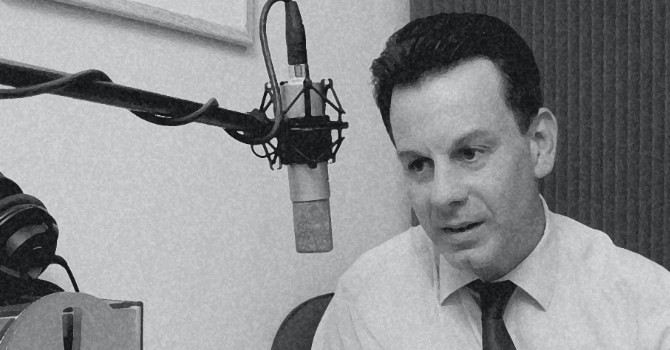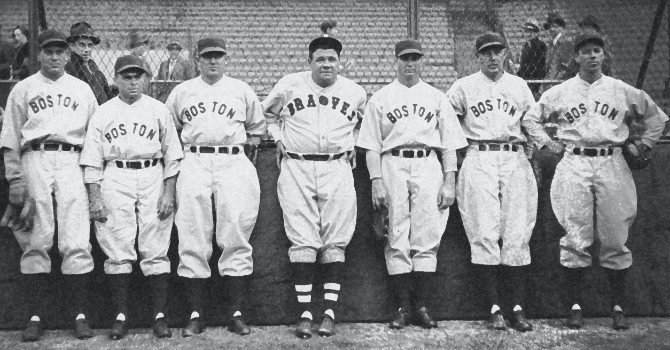Business leaders aught to know that, despite our strongest wishes, people don’t just buy products or invest in services because we want them to. They need to be given compelling reasons why.
Why should our business matter to other people? Why is what we’re doing so important? And what are some convincing reasons they should join our cause?
I’m going to make the case that the best way to compel people to care and act is not with conventional rhetoric, slides of data, or lists with information, but through stories that combine an idea with an emotion instead.
Before I go further, I want to clear up a misconception people have about storytelling. Many of us assume that storytelling is somehow in conflict with truth and authenticity. They’re suspicious of storytellers. In their view, a storyteller is a tale-teller: a spinner of yarns who constructs narratives unrooted in honesty and authenticity. That’s simply not true.

So, What Is a Story?
Business storytelling is an art that presents an idea with enough emotional power to transport people from the present world to a better place using layers of meaning and truth.
It begins with a scenario where life is in balance: You come home from work day after day and everything’s perfect and fine.
But one day, there’s an event: Walking through the door, you discover a note on the table—your family has gone missing. In screenwriting, this is called the “inciting incident” that throws the ordinary world off balance.
The storyteller’s job is to explain the effort to restore balance, what it’s like to wrestle with opposing forces, how to take action despite the risks, and arrive at a changed, yet better, world.

A Life-and-Death Story
On May 22, 1948, Ralph Edwards, the host of the radio show Truth or Consequence, interrupted his usual broadcast to bring people a life-and-death story.
“Tonight we take you to a little fellow named Jimmy.”
“We are not going to give you his last name,” Edwards explained, “because he’s just like thousands of other young fellows and girls in private homes and hospitals all over the country. Jimmy is suffering from cancer. He’s a swell little guy, and although he cannot figure out why he isn’t out with the other kids, he does love his baseball and follows every move of his favorite team, the Boston Braves.”
“Now, by the magic of radio, we’re going to span the breadth of the United States and take you right up to the bedside of Jimmy, in one of America’s great cities, Boston, Massachusetts, and into one of America’s great hospitals, the Children’s Hospital in Boston… Give us Jimmy please.”
Then, across the entire nation, Jimmy could be heard.
Jimmy: Hi.
Edwards: Hi, Jimmy! This is Ralph Edwards of the Truth or Consequences radio program. I’ve heard you like baseball. Is that right?
Jimmy: Yeah, it’s my favorite sport.
Edwards: It’s your favorite sport! Who do you think is going to win the pennant this year?
Jimmy: The Boston Braves, I hope.
Edwards: Have you ever met Phil Masi?
Jimmy: No.
Phil Masi (walking in): Hi, Jimmy. My name is Phil Masi.
Over the static, Jimmy’s gasp could be heard.
Edwards: What? Who’s that Jimmy?
Jimmy: Phil Masi!
Edwards: And where is he?
Jimmy: In my room!
Edwards: Well, what do you know? Right here in your hospital room—Phil Masi from Berlin, Illinois! Who’s the best home-run hitter on the team, Jimmy?
Jimmy: Jeff Heath.
(Heath entered Jimmy’s hospital room.)
Edwards: Who’s that, Jimmy?
Jimmy: Jeff . . . Heath.
One by one, player after player, the Braves entered Jimmy’s hospital room bringing T-shirts, signed baseballs, game tickets, and caps.

The Jimmy Fund
At the end of the broadcast, Edwards lowered his voice, “Now listen, folks. Now we know that one thing little Jimmy wants most is a television set to watch the baseball games as well as hear them.”
“Let’s make Jimmy and thousands of boys and girls who are suffering from cancer happy by aiding the research to help find a cure for cancer in children. If you and your friends send in your quarters, dollars, and tens of dollars tonight to Jimmy for the Children’s Cancer Research Fund, and over two hundred thousand dollars is contributed to this worthy cause, we’ll see to it that Jimmy gets his television set.”
The public response to Jimmy’s story was staggering. Even before the Braves had a chance to leave Jimmy’s room that night, donors had lined up outside of the lobby at the Children’s Hospital.
Others mailed dollar bills, wrote checks, children mailed in pocket change, and in a few days, more than $231,000 poured in.
Jimmy received his television set. A new building with all the bells and whistles was established. New steps, graded by only an inch so that children could easily climb them, were designed. Waiting rooms had boxes full of toys. A library full of books and hallways painted with storybook characters were commissioned.
Jimmy’s story had captured the heart of the nation.

Those Who Tell the Best Stories Will Win the Future
Every business, important idea, and worthy campaign needs a story that can enter people’s hearts, where their emotions live, and inspire them to act and bring forth change.
A well-crafted story even has the power to transform a seemingly hopeless situation into an unexpected triumph. If businesses are to join the iconic brands of the future, they must do so using the world’s most powerful tool for achieving astonishing results: good storytelling.

Worth reading! You’ve pointed out some cool subjects about storytelling!
Excellent, Mehrab!